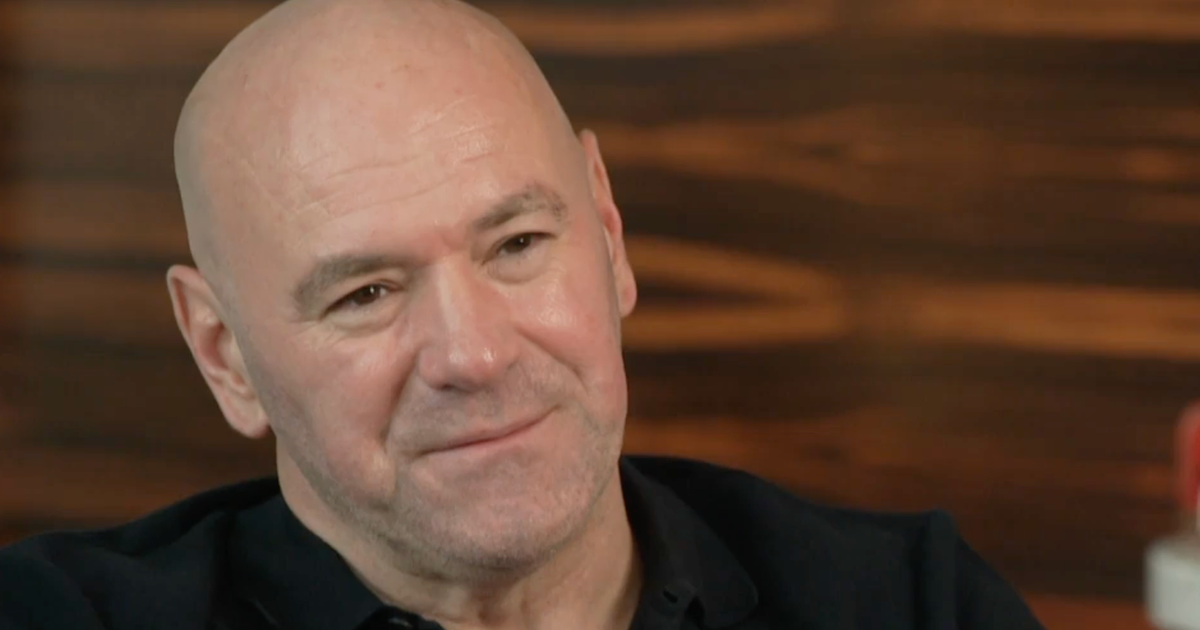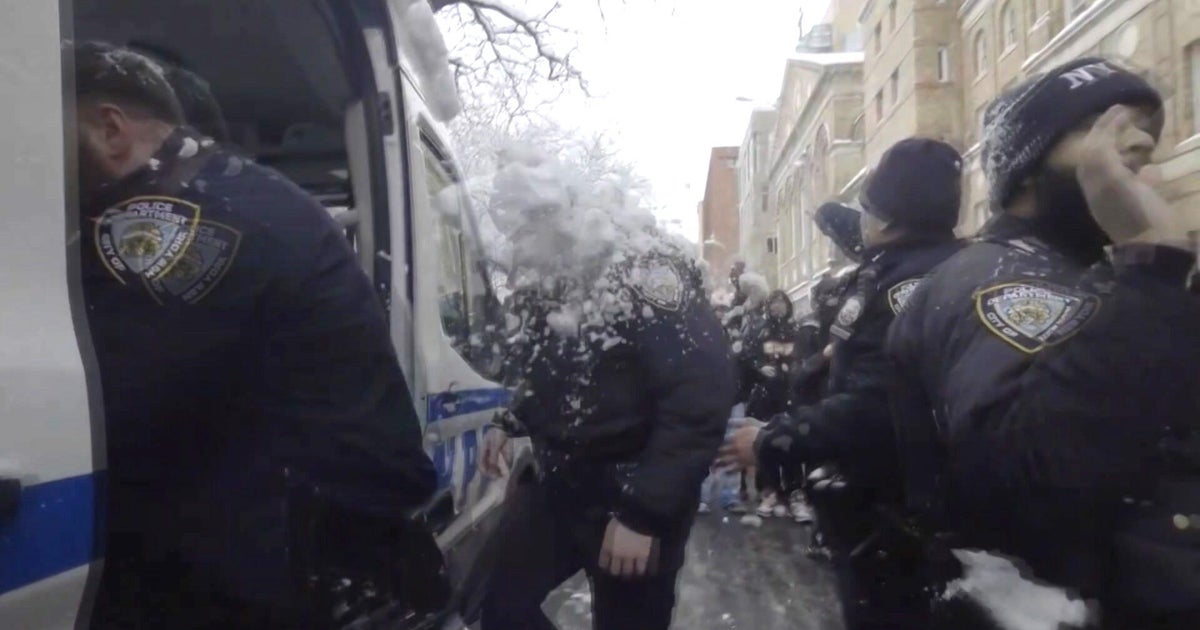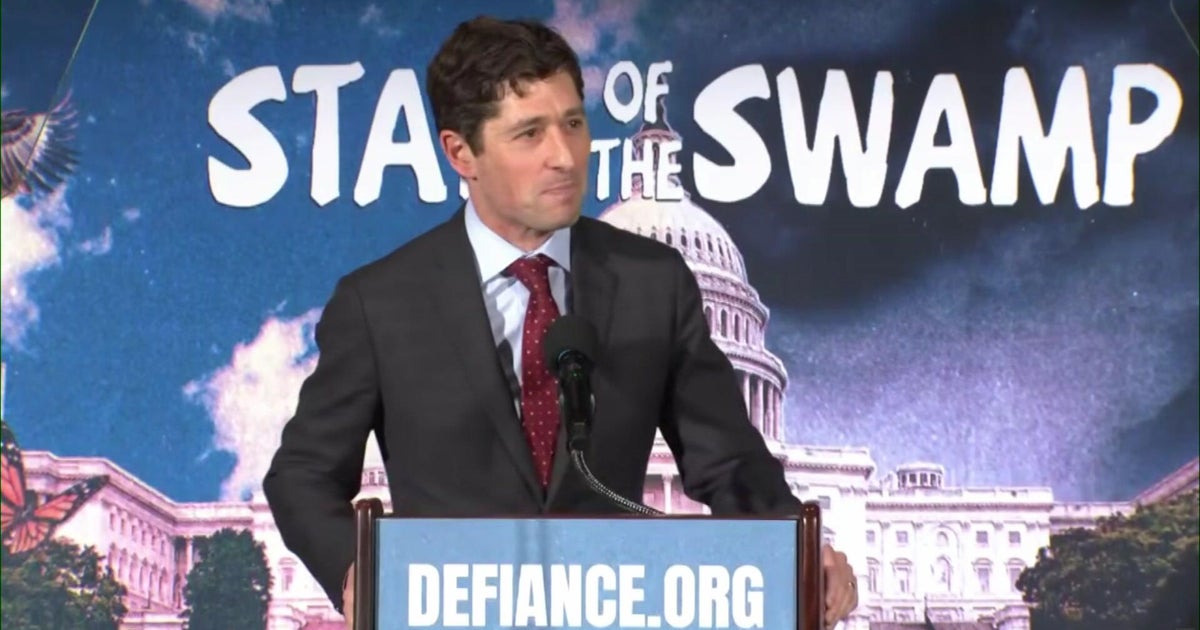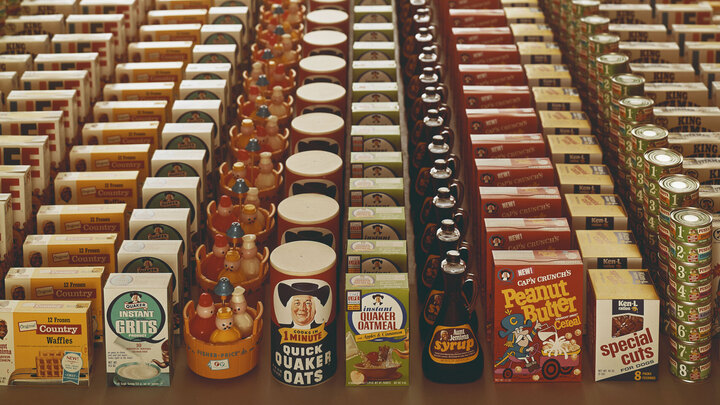Transcript: Scott Gottlieb discusses coronavirus on "Face the Nation," February 14, 2021
The following is a transcript of an interview with former FDA Commissioner Scott Gottlieb that aired February 14, 2021, on "Face the Nation."
MARGARET BRENNAN: We turn now to former FDA commissioner Dr. Scott Gottlieb. He sits on the board of Pfizer as well as Illumina, and he joins us from Westport, Connecticut. Good morning to you.
DOCTOR SCOTT GOTTLIEB: Good morning.
MARGARET BRENNAN: I know you agree with the- the CEO of Rite Aid there that the private sector should take a- a more direct role in more of this process. Do you see the Biden administration eventually getting there?
DR. GOTTLIEB: Well, I think they're doing it right now, the Biden administration. I think they're taking an all-of-the-above approach in terms of trying to push this out and create more access sites. You know, the one recommendation I would make is that I wouldn't- I wouldn't devote as much federal resources to developing these mass vaccination sites. I think people who can go online, register, drive to Dodger Stadium, wait in line, take a half a day off from work to get vaccinated, those are people who could be serviced by Walmart, CVS, Rite Aid. I would be taking the federal resources and the state resources and creating more bespoke solutions that can be used in some of the hard-to-reach environments, some of the underserved communities whether you can move mobile vans into those communities, try to work through community groups, local providers, church groups, community health centers to try to get harder-to-reach populations vaccinated. That's a very difficult effort. It's expensive. It's a bespoke effort. It's a hands-on effort. I'd be marshaling the federal resources towards that kind of a mission and letting Walmart work off the easy demand and Rite Aid.
MARGARET BRENNAN: The Biden administration purchased 200 million more doses. That gives them a stockpile about 600 eventually once it comes off the production line. You heard me talk with the- the CDC director and I asked her when production should shift to those treatments of new variants. She said that is happening now. What can you tell us about where we stand in terms of being ready to protect against those new variants?
DR. GOTTLIEB: Well, look, I think we have plenty of time to get this right for the fall and have vaccine boosters that could cover these new variants. The development work is going on right now. So all the companies are developing new variant vaccines, including Pfizer, the company I'm on the board of. The question is, when do you start shifting over your manufacturing? And I think you're going to need to probably make that decision at some point in July, August at the latest. And you might not shift over all your manufacturing. You might shift some of your- your manufacturing towards those new variant vaccines, because remember, they won't be fully through clinical trials yet. So you don't want to throw all your eggs into that basket, but you do want to create some supply that you'll have it on-hand come the fall if you need those vaccines. So I think that's about the point where you're going to make that decision. The time to starting manu- the manufacturing process and actually getting finished vaccine off the line is about two months. So if you start manufacturing in July, you'll start getting vaccine off the line in time for the fall.
MARGARET BRENNAN: You heard the British prime minister stand by his decision to continue vaccinating his populace with AstraZeneca's vaccine, even though it has shown itself to not be as effective in early trials against the South African variant. The WHO is sticking with it, too. Is that a mistake?
DR SCOTT GOTTLIEB: Well, I think if we're going to do that, we need a plan B. I understand why they want to do this. They've manufactured a lot of this vaccine. It's cheap. It's accessible. It could be put into low and middle income countries because of the handling requirements. It doesn't require complicated cold chain storage. But if you're putting a vaccine into those markets that we know does not cover B.1.351, the South African variant, very well, if at all. You have the risk that you could select for that variant in those markets. And so you need a plan B on what vaccine you're going to deploy to those regions if in fact B.1.351 becomes prevalent in those regions after you vaccinate with the AstraZeneca vaccine. And the problem is you may foreclose the one vaccine that's the most likely candidate in those markets, which is the J&J vaccine because it has very similar storage requirements. You would want to use that vaccine. But in fact, the AstraZeneca vaccine is very immunogenic against the vaccine vector. So what they're using to deliver the COVID gene sequence is a chimpanzee adenovirus. And it turns out that that adenovirus that they're using is very immunogenic. It creates antibodies that can attack other adenoviruses, including perhaps, and we don't know this for sure, but perhaps the J&J vaccine. So you might foreclose the opportunity to use that vaccine in these markets, which means you need another plan B, which might be the mRNA vaccines, like the vaccine that Pfizer produces, the company I'm on the board of. But those vaccines are harder to handle in those markets because they require more complicated cold chain storage. So we need to work this out right now.
MARGARET BRENNAN: That's a pretty big warning that you're making right now. I- I--
DR. GOTTLIEB: Well I think they- I think they need to have a plan for that, yeah.
MARGARET BRENNAN: I also want to ask you about these comments. They were pretty sharp, I thought, from the- from the Biden administration's National Security Adviser Jake Sullivan. He said yesterday that the Biden administration has deep concern about the World Health Organization's investigation, Chinese interference in it. He demanded handing over data. That's exactly what the Trump administration demanded as well. What is it that China still has here that we need to know?
DR. GOTTLIEB: A lot of data. Well, first of all, they have antibody testing on the people who worked in that Wuhan lab. They didn't make that available. So you'd want to know if they have antibodies to the coronavirus. That would be an indication that maybe they- they got infected. Now, those antibodies will- will wane over time. But you at least want to look at that data. We want to see sequencing data on retained samples from people who were admitted to the hospital in October and November with viral syndromes that looked like COVID to see if this infection was spreading earlier and try to get closer to the source of the initial outbreak. That data is certainly available, the Chinese have that.
MARGARET BRENNAN: Yeah.
DR. GOTTLIEB: So there's a lot of data that was not made available.
MARGARET BRENNAN: Dr. Gottlieb, thank you, as always, for your time. We'll be back in a moment.



